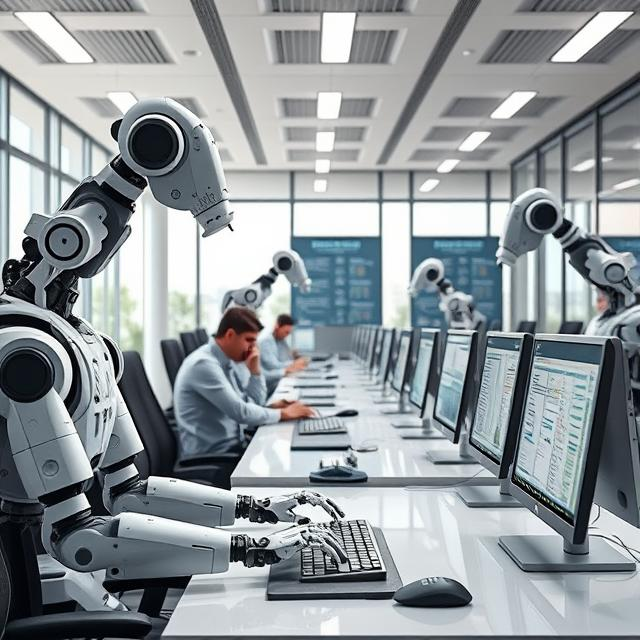In today’s quick-moving business world, getting things done fast matters, and RPA (Robotic Process Automation) is helping companies do just that. RPA uses software robots, or “bots,” to do boring, time-eating jobs that people handle. These bots can work with digital systems and apps just like humans do, but they’re way faster and don’t make mistakes like we might.
The widespread use of RPA in different sectors shows it can streamline work, boost output, and make jobs more fulfilling. When companies automate everyday tasks, their staff can turn to more important valuable work. This change not makes things run smoother but also creates a more rewarding workplace for employees.
Benefits of Using RPA Across Industries
1. RPA in Healthcare In healthcare, RPA has a big influence on how things work. It’s changing the game for administrative jobs. Hospitals and clinics use RPA to handle patient info, set up appointments, and take care of bills. This cuts down on mistakes, makes everything run smoother, and frees up doctors and nurses to spend more time with patients. In the end, this means people get better care and have a better shot at getting well.
2. Finance and Banking Innovations RPA has a big impact on the finance sector. Banks and financial firms use RPA to automate fraud detection regulatory compliance checks, and customer service. This automation leads to faster processing lower costs, and happier customers. These benefits are key in today’s competitive market.
3. Insurance Industry Transformation RPA is changing the insurance industry. It automates claims processing, underwriting, and policy management. This lets insurers work faster, make fewer mistakes, and serve customers better. As a result, insurance companies can run more and provide better service to their clients.
4. Human Resources Automation Human Resources (HR) departments also benefit from RPA. RPA makes HR tasks easier, like bringing new employees on board handling paychecks, and tracking how well people work. This allows HR teams to spend more time on big-picture planning. As a result, HR staff have less paperwork to deal with and can do more to help the company grow and improve.
RPA and AI Integration: A Smarter Future
One of the most thrilling advancements in the RPA field is how it’s joining forces with Artificial Intelligence (AI). When businesses mix RPA with AI, they can automate trickier decision-making tasks adjusting to changing environments with more smarts. This team-up boosts what RPA bots can do turning them into even stronger tools to boost productivity, streamline operations, and improve business results.
The Future of RPA
RPA’s future looks bright. As more companies see how helpful automation can be, RPA will keep growing in importance. Progress in AI and machine learning will help RPA bots get smarter and tackle more complex jobs. This won’t just make them work better, but it’ll also push digital changes across different industries.
